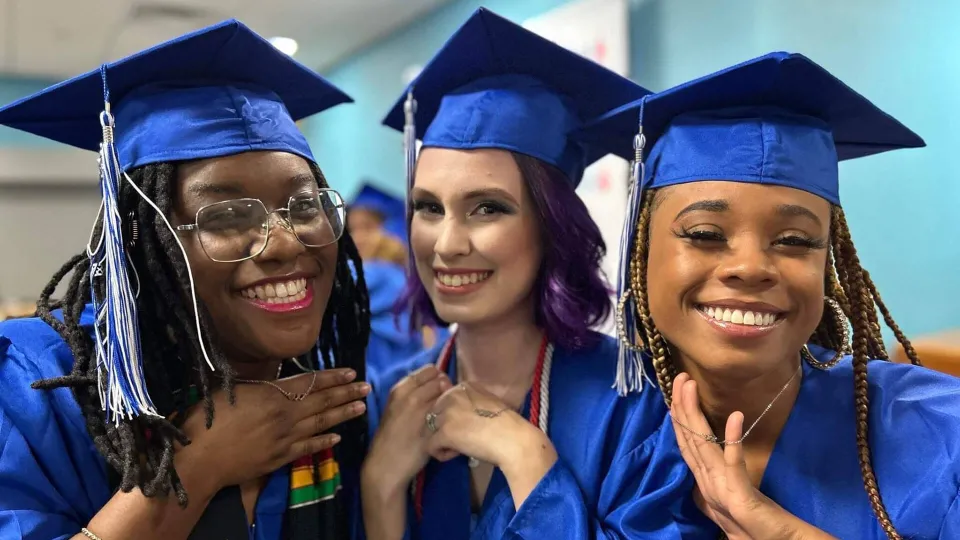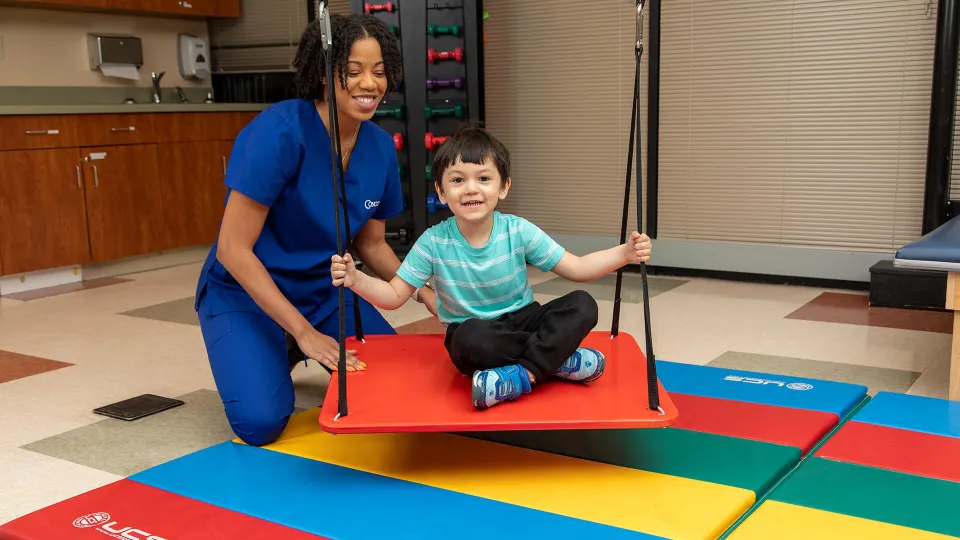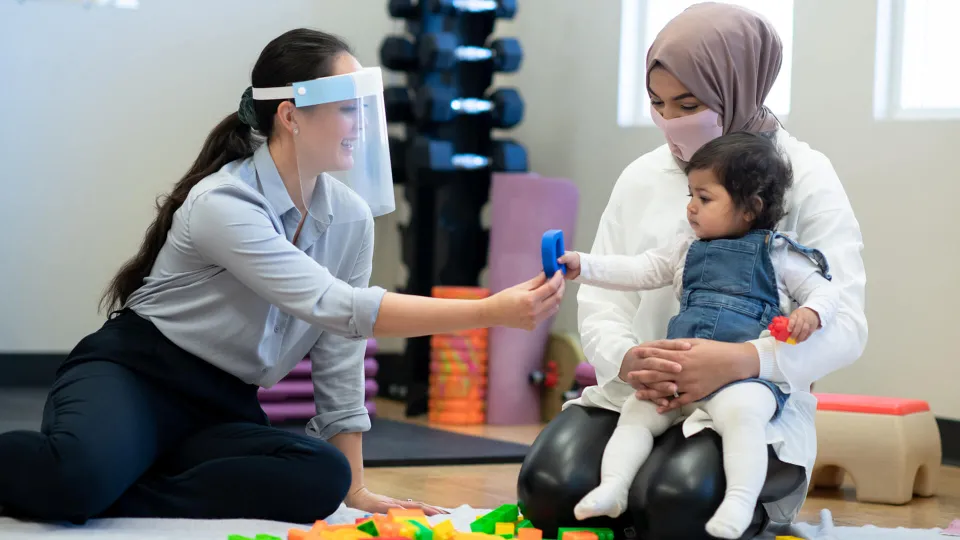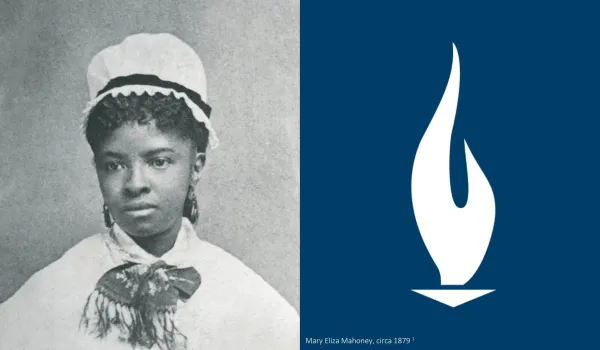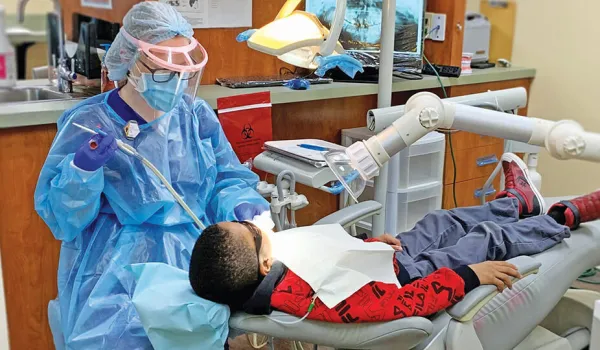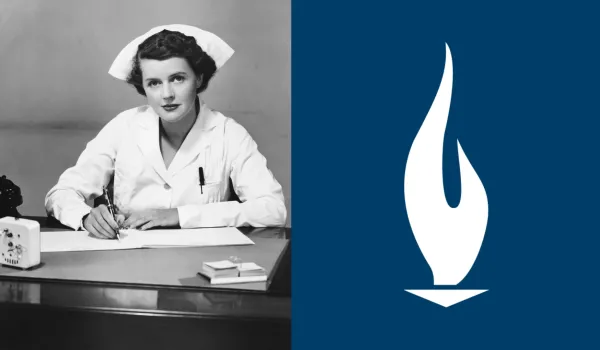Concorde Staff
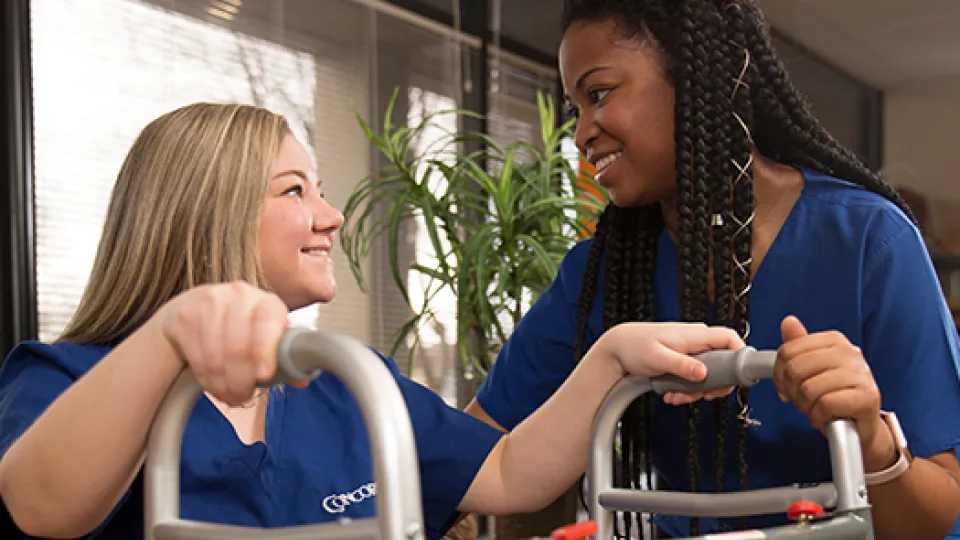
April is a special month for healthcare—it's OTA Awareness Month! To celebrate it, we're proud to share stories from the Occupational Therapist Assistant (OTA) programs at the Memphis, Tennessee, and Miramar, Florida campuses. They demonstrate the life-changing impact of Occupational Therapy.
The Holistic Approach to Occupational Therapy
Occupational Therapy (OT) is a type of healthcare treatment that helps people of all ages succeed in everyday activities. Sometimes, this treatment comes after an injury or illness, but there are many other instances, including autism, speech impairments, and more.
“Occupational Therapist Assistants help individuals become independent after any health issue they’ve experienced, whether it’s from a birth defect, recovering from a stroke or even struggles with self-esteem or depression,” said Maria Chamorro, Director of OTA Programs at the Miramar, Florida campus.
The Inspirations Behind Their Journeys
Maria Chamorro: From Discovery to Practice

Maria Chamorro found her calling in OT in a way she didn't expect. She was in college and knew she wanted to enter healthcare but hadn't decided on a role.
This changed when she went with her mother-in-law to a post-surgery appointment.
That day, Maria said, "I saw what the OTs were doing and fell in love with it. They helped my mother-in-law. Watching them work with her, I could see myself in that role."
As she learned more about OT, Maria was impressed by how OT looks at the whole person—not just their body but also their thoughts, emotions, cultural background and spiritual beliefs.
Maria said, “It doesn't matter if someone is born with a challenge, has an accident, or is fighting an illness; OT can help people live better lives.” Maria found her calling in healthcare and has been serving as an OT since 2003.
Now, as the OTA Program Director at Concorde Miramar, Maria focuses on creating a supportive place where students can work together and learn from each other.
Nicole Hood: From Teenage Inspiration to OT Leader
Nicole Hood is the Director of OTA Programs at the Memphis, TN campus. She didn't start her journey into OT in a university lecture hall or from a textbook. Instead, her path began as a teenager.
To complete volunteer hours in high school, she stumbled upon a job that changed her life. Nicole received on-the-job training to provide behavioral therapy for a 3-year-old child with autism.
This experience helped Leslie discover her passion for helping others grow and become more independent. She says, "I quickly fell in love with the child, the family and the work I was doing."
Nicole went to OT sessions with the child. There she learned how important creativity and problem-solving are in OT. Twenty-four years later, Nicole finds joy in nurturing a new generation of OTAs to begin their careers. "Since joining Concorde in 2011, I've seen students blossom into OTAs. It's an honor to help these future professionals start careers that will change their lives and help others too," Nicole said.
Interested In How To Become an Occupational Therapy Assistant?
Click here to explore Occupational Therapy Assistant Programs near you!
Amy Marks: From Curiosity to Calling

As a Medical Assistant, Amy witnessed firsthand the challenges and victories of patients on their recovery paths. She knew she wanted to play a greater role in helping patients regain their health.
Amy began looking at OT as a possibility. She watched videos and did online research, but it was Amy's campus tour at Concorde’s Miramar campus that moved her to act.
In OTA fieldwork training, Amy learned about using horses to help kids. The training was intense with lots of walking. As Amy was juggling the challenges of her personal life and being a successful student, she found support and encouragement from LaKeisha Sanders-Woods, Academic Fieldwork Coordinator.
"Ms. Woods was so motivating, sweet and a true support," Amy recalls.
Her mentor's encouraging words, "Now you can do it. Come on, don't let these challenges stop you. You're nearly there," were inspiring, guiding Amy through the toughest moments of her fieldwork.
Now, as an OTA, Amy says, "I've discovered it's important to look past the diagnosis and get to know the patient. It's more about getting who they are, not just their health issue. By accepting their unique traits, I can see the beauty in each person, making every moment with them special.”
For Amy Marks, the journey has only just begun. Amy's passion for pediatric OT is reflected in her daily work, where she supports children on their path to independence.
LaKeisha Sanders-Woods: A Fieldwork Coordinator and Encourager

LaKeisha shared how important fieldwork training is:
"I love going out into the community and building relationships with various sites.
Students need to see what we do in the field versus what they learn from books.
This hands-on experience allows them to practice communicating with patients, using the 'therapeutic use of self.'
By bringing their authentic selves into these relationships, students can help patients through the healing process."
Camille Chandler: From Rehab Tech to OTA

After getting her degree in Health Science, Camille became a Rehab Tech. During her daily work, she discovered how OTAs helped patients directly.
She chose to take her mother's advice and chase a career she'd love.
Reflecting on her training in the OTA program at Miramar, Camille said, "It was really helpful and encouraging when my teachers noticed and praised my strengths, like my ability to talk to patients and my leadership skills."
Camille found the practice labs and mock patient sessions "valuable in preparing for real-life situations."
Camille works at a Pediatric Therapy Clinic in Washington, D.C. She shared ways that children receive help in making life's challenges more manageable.
“Something as simple as learning how to use a planner can help a 6th grader face the hectic and quick pace of starting a new stage of learning,” Camille said. Writing deadlines in a planner can be helpful, but Camille pointed out that it goes beyond that.
There needs to be time scheduled for studying material before the due date. She explained that “Often, young children don't know how to use the tools they are given.” She believes it's important to spend time teaching them how to make them useful and meaningful in their daily lives. Her work shows that OT practitioners give people the tools they need to succeed.
Raising Awareness About OT
1. Clearing Up the Confusion Around "Occupation"
The purpose of OT is to help people lead fulfilling lives, not just those with an "occupation." Nicole explains that some people get confused and think "occupation" means the same as "job" or "career" when they hear about OT. Maria agrees and says, "Occupation is not limited to 'career' or 'job' but involves any meaningful activity that individuals engage in daily."
Increasing awareness about what OT is will help people realize how it can help them or a family member, offering hope and independence when facing a healthcare challenge.
Camille adds, "OT treatment can benefit any person dealing with any situation." These insights show the importance of understanding how OT helps people of all ages lead purposeful lives.
2. The Wide World of Occupational Therapy
OTAs can work in a variety of different specialties and roles.
LaKeisha would like to see more awareness about the variety of roles there are for OTAs. She explains, “In OT, we do much more than you see in clinics. For example, we teach how to help people drive again with driver's rehab. We can also work with people who are blind to help them experience the world in a new way. And have you heard of Hippotherapy? It's when we use horses to help our patients reach their goals. Plus, a big part of our job is helping people feel better mentally as they work towards goals to improve their quality of life.
- Pediatrics: Helps kids from babies to teens with health and growth issues.
- Geriatric: Cares for older people with age-related issues like memory problems and joint pain.
- Rehabilitation Center: Helps people recover skills after operations or major illnesses.
- School-Based: Helps students with health issues adapt, learn and overcome.
- Mental Health: Supports people with mental health challenges to manage life better.
- Acute Care: Provides therapy in hospitals for those recovering from surgery or sickness.
- Outpatient Clinic: Offers therapy for different health issues without staying in a hospital.
- Skilled Nursing Facility: Aids elderly or long-term ill patients in nursing homes to move better.
- Home Health: Gives therapy at home for patients to recover or manage health issues comfortably.
- Driver Rehabilitation: Helps people get back to driving safely after an injury or with a disability.
- Telehealth: Provides therapy through the internet, helping patients remotely.
- Lymphedema Management: Treats swelling with special massages, wrapping and education.
- Research: Works on projects to learn more and improve how therapy is done.
- Educator/Instructor: Teaches future therapists or provides learning resources to the public.
OTAs have many job options. And they have the opportunity to improve individuals’ lives in each one.
3. Cultural Competence: A Key to Better Healthcare
Understanding and respecting patients' different backgrounds and beliefs is important in healthcare. This idea is called cultural competence.
Every person comes from a unique cultural background that shapes how they view health, illness and healthcare. When OT practitioners understand this, they can give care that fits each patient's needs and respects their beliefs. Without this understanding, there's a risk that patients might not get the right care. Worse, they might feel disrespected or misunderstood because of their cultural differences. This can lead to patients not following medical advice or feeling unhappy with their care.
Maria explains, "Healthcare isn't just about treating the body. It's also about connecting with people on a personal level. This means paying attention to what's important to them, including their cultural background."
When healthcare providers make the effort to be culturally competent, everyone wins. Patients feel more comfortable and understood, which helps build trust. This trust makes it easier for patients to talk openly with their doctors and follow their health advice. Raising awareness and training healthcare providers to be culturally competent makes patients feel valued and receive the best possible care. This leads to happier patients, better health outcomes and a healthcare system that works for everyone.
Celebrating OTA Awareness Month
Patients’ everyday lives are improved because of the passion OTAs have. "Seeing my patients get better and happier is the best part of my job. It makes me love what I do as an OTA even more," says Amy Marks.
As we join the Memphis and Miramar campuses celebrating OTA Awareness Month, let's recognize the compassion and expertise of OTAs everywhere. Their dedication to improving people's lives and helping communities is inspiring.
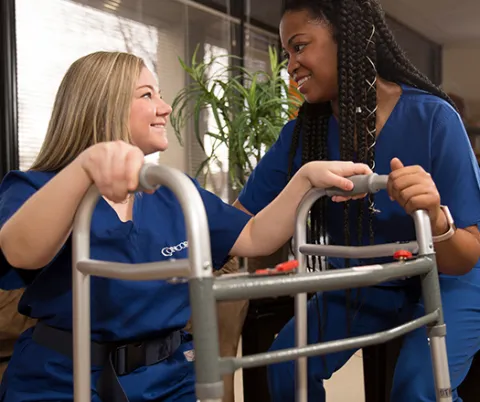
Take The Next Step Towards a Brighter Future
Interested in learning more about our Occupational Therapy Assistant program? We have a Concorde representative ready to talk about what matters most to you. Get answers about start dates, curriculum, financial aid, scholarships and more!
